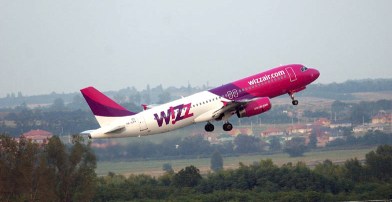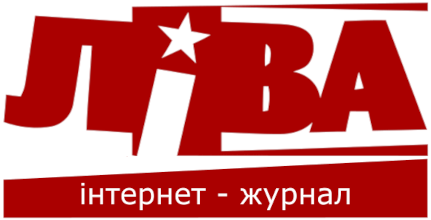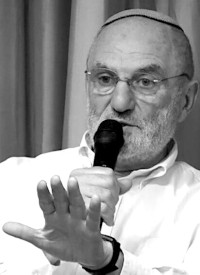
In
2008, the company Wizz Air came to the Ukrainian market. The budget airline
from Hungary, which offered flights to Europe at a relatively affordable price,
immediately changed the attitude of many citizens toward travel to Europe.
Dozens of my friends from among the "middle class" used the services
of the airline. No joke, for 1000 hryvnia [some
100 Euro last year] you could fly to London. When buying tickets in advance, Wizz Air
could even be cheaper than some train tickets to Russia.
Before the victory of Maidan, I sometimes participated in a TV show which held
political debates on so-called European integration, since
some leftist
activists were invited there as “whipping boys.” Of
course, these quasi-debates in fact amounted to organized praise of
"European standards," the real substance of which few of the invited
participants understood. All attempts to explain the well-known worldwide
economic problems of the European Union, which reflected the crisis of the
economy in almost half of the countries of the EU, met with strong objection --
and even the crisis in Greece and Latvia were often perceived by my opponents
as “communist-Russian propaganda,” although it is written
openly in leading Western business publications.
Both staunch supporters of Yanukovych's Party of Regions and the
liberal-nationalist opposition, in different ways, touted a beautiful picture
of a perfect bourgeois life in the European Union, which was hammered into the
public consciousness. I even heard the reproach that we -- the critics of
so-called European integration -- resisted only because we had never been to
Europe, and didn't understand a damn thing. Ignoring the level of this
argument, I can only say that on some of my trips to Europe, I was obliged to
use the budget airline, which allowed many Ukrainians to fly for a couple of
days to Europe -- where they, however, only had time to see hotels and tourist
facilities rather than the underside of the glamorous picture.
And now, after the victory of Maidan favored by many of its customers, the
company has fallen on hard times. New rules for airlines have come into effect
in Ukraine, which require that aircraft be at least 50% owned by Ukrainians. A
foreign company cannot get permission to fly. General Director of ‘Atlasjet
Ukraine’ Sergey Podgoretsky said at a press conference in
Kiev that the state is losing control of the aviation industry of Ukraine to
the interests of a single financial-industrial group. Although he did not
disclose the name of this group, it is clear that we are talking about the businesses of Igor Kolomoisky.
This Ukrainian oligarch became famous not only for sponsoring Maidan and
openly, on camera, declaring himself a citizen of three countries -- but also
for the fact that he earlier artificially bankrupted the airline company
AeroSvit, in violation of national law, throwing its workers onto the
street.
Borotba activists helped employees of the bankrupt company to hold protest
rallies, blocking its office on the "Borispol" metro station.
Employees told us that the assets of AeroSvit were withdrawn into other
companies, with plans to restructure after announcing its bankruptcy. Some
workers pinned their hopes on employment in other companies associated with
Kolomoiskiy -- for example, UIA [MАУ] and
Dniproavia. Such promises were given by the administration. But the management
of the other airlines prefered to recruit and train newcomers who earn much
less than experienced flight attendants and ground personnel. Later, many active
employees, outraged by the way the owners treated them,
became Maidan activists. They did not understand that the boss, who cynically fired them, would be one of the main beneficiaries of its victory -- and get
extra power to continue to monopolize the air transport market.
Of course, I don't want to praise the management of Wizz Air. Their low prices,
too, have the opposite direction – they lower prices by subjecting the ground
personnel to sweatshop conditions and ignoring safety regulations. But what if
the result of Maidan is to shrink or even close this window to Europe? Now many
of our fellow citizens cannot afford to travel abroad, not only because of the
high cost of tickets, but also because of the rapidly falling hryvnia exchange
rate -- they simply cannot afford to buy foreign currency.
Another factor that "closes" Europe for us is the tightening of the
visa regime with the EU. Not long ago, Poland announced additional measures at
the border with Ukraine in order to strengthen border control and expanded the list
of documents for obtaining a visa. Agreement on the "Single European
Sky," the signing of which was planned under Yanukovych and was supposed
to put foreign carriers on an equal footing with Ukrainian companies – which
should reduce rates – is postponed indefinitely. It is clear that this is a
cost of the victory of Maidan and the oligarch-governor of Dnepropetrovsk region – I.Kolomoisky. And media channels under his control hushed up this
uncomfortable issue, diverting the audience's
dissatisfaction to “separatists.”
At a meeting with students at the University of Bologna in Italy, I was asked:
“Don't people in your country realize that they are farther from Europe than
two years ago?” What could I answer the astonished Italian
students? “Some realize it -- but not all”.
Sergei Kirichuk
Translation by Greg Butterfield
-
Історія
Африка и немцы - история колонизации Намибии
Илья Деревянко история колонизации Намибии>> -
Економіка
Уолл-стрит рассчитывает на прибыли от войны
Илай Клифтон Спрос растет>> -
Антифашизм
Комплекс Бандеры. Фашисты: история, функции, сети
Junge Welt Против ревизионизма>> -
Історія
«Красная скала». Камни истории и флаги войны
Андрій Манчук Создатели конфликта>>

.jpg)












 RSS
RSS





